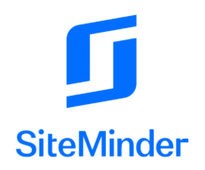What is EBITDAR and how do you calculate it?

EBITDAR is yet another way to track your hotel’s financial health. You might be more used to tracking metrics such as RevPAR, TrevPAR, or GOPPAR, but EBITDAR can really help you measure your performance against similar properties in the industry.
Let’s dive deeper into what EBITDAR means.
Table of contents
- 1. What is EBITDAR?
- 2. How to calculate EDITDAR
- 3. Benefits of using EDITDAR formula at your hotel
- 4. Is EBITDAR the same as EBITDA?
What is EBITDAR?
EBITDAR stands for earnings before interest, taxes, depreciation, amortisation, and restructuring or rent costs (EBITDAR). It’s useful for businesses such as hotels, restaurants or casinos that have unique or variable rent costs.
EBITDAR exists alongside, but should not be confused with, earnings before interest and tax (EBIT) and earnings before interest, tax, depreciation, and amortisation (EBITDA).
It helps analysts understand the ability of the business to generate profits, even after spending huge rent or restructuring costs as a part of its operations.
How to calculate EDITDAR
EBITDAR = EBITDA + Restructuring/Rental Costs.
Remembering that: EBITDA = Earnings before interest, taxes, depreciation, and amortisation.
For example, if your hotel earns $1.6 million in a year, and it has $600,000 in total operating expenses, you first need to subtract operating expenses from revenue. This results in $1 million of EBIT (operating income).
Now consider that within the operating expenses there is depreciation of $10,000, amortisation of $10,000, and rent of $70,000.
To find the EBITDAR, you need to exclude depreciation, amortisation and rent ($10,000 + $10,000 + $70,000). This means adding it back onto your operating income.
EBITDAR = $1 million EBIT + ($10,000 + $10,000 + $70,000) = $1.09 million.
Benefits of using EDITDAR formula at your hotel
Using EBITDAR is particularly helpful when comparing peer companies within the same industry, or even different properties within the same company, as it reduces variability.
For example, similar hotels in different cities and different parts of a country will have significantly different rent costs. Using EBITDAR allows you to compare the performance of the properties based on their core income activities, giving you a clearer picture of which one is more profitable.
Note that EBITDAR is most applicable for large businesses or businesses with a lot of assets, such as an enterprise level hotel brand.
It can help with:
- Viewing overall performance
- Comparing performance
- Budgeting and restructuring decisions
- Investing
Is EBITDAR the same as EBITDA?
EBITDAR and EBITDA are similar, except that EBITDAR excludes restructuring and/or rent costs.
Both are used to compare the performance of two companies but using EBITDAR better allows you to remove variability from your analysis.
EBIT is also used as a basis for both metrics, and is needed before you start calculating your EBITDAR.

About SiteMinder
SiteMinder Limited (ASX:SDR) is the name behind SiteMinder, the world's leading hotel distribution and revenue platform, and Little Hotelier, an all-in-one hotel management software that makes the lives of small accommodation providers easier. The global company is headquartered in Sydney with offices in Bangalore, Bangkok, Barcelona, Berlin, Dallas, Galway, London, Manila and Mexico City. Through its technology and the largest partner ecosystem in the global hotel industry, SiteMinder generates more than 125 million reservations worth over US$50 billion in revenue for its hotel customers each year. For more information, visit siteminder.com.
